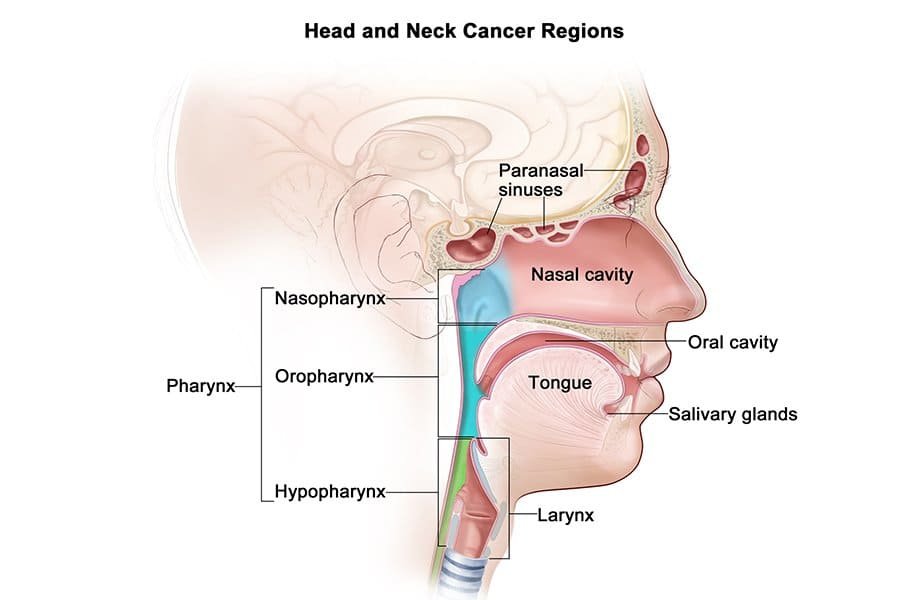Head and Neck Cancer

April is Oral, Head and Neck Cancer Awareness Month. In honour of this, this month, we at RSS will be sharing information about these life-changing diagnoses.
Head and Neck cancers originate from the larynx (voice box), mouth (including the lips and tongue), pharynx (throat), nose and sinuses, and salivary glands. There are other cancers which are found in the region but these are grouped together due to similar causes, presentations and treatments.
These cancers are relatively uncommon, affecting primarily those over the age of 50. They are associated with smoking, frequent alcohol use, and in the past few decades, increasingly associated with the Human Papilloma Virus. Because both the disease and treatment can impact eating, breathing, speech and facial appearance, even when they do not cause death they may lead to significant disability. Life can thereby be made intolerable for those afflicted, and lead to social isolation and loss of human contact, which are so necessary for a healthy and happy existence.
It is best to avoid developing these cancers or at least to detect them early so that therapy might be successful, complete and with minimal undesirable effects. Treatment of more advanced disease can be difficult, often requiring the involvement of multiple disciplines, including surgeons of different specialties and a variety of nursing and paramedical disciplines. As such, especially on a resource-challenged small Caribbean island, prevention and early detection will need to be the keys to controlling this condition. One should therefore always be on the lookout for signs which may indicate cancer in the head and neck. Here in Rovier Surgical Suites, we have the facilities to enable early detection of these cancers and have successfully surgically treated head and neck cancer.
We will, in subsequent posts, explore the ways to help prevent head and neck cancers, ways to detect them early, and treatment options available.


